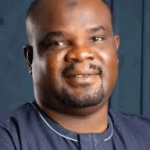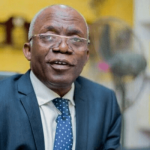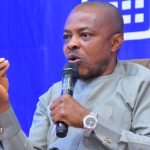The Vice President, Senator Kashim Shettima, has declared the Federal Government’s resolve to position the nation among the top 80 countries on the global Human Capital Index (HCI) by building a healthier, better-educated, and empowered Nigeria.
Shettima gave this assurance on Friday when he inaugurated the National Council to address flood, erosion and other climate disasters.
Speaking in a statement issued by his spokesman, Stanley Nkwocha,
The task of making the country one of the best 90 in human capital development was ambitious but quite achievable, just as he called on all Nigerians, including policymakers and community leaders, to embrace the Human Capital Development Programme.
He stated this while inaugurating the HCD 2.0 Strategy during a meeting of the Steering Committee of the Human Capital Development Programme at the Presidential Villa.
He said, “Our targets are ambitious, yet achievable. We aim to position Nigeria among the top 80 countries on the Human Capital Index, reaching a score of 0.6 by 2030.
“These metrics represent more than just numbers; they signify the real change in the lives of our people—access to quality healthcare, improved educational outcomes, expanded opportunities for meaningful employment, and a society that remains resilient in the face of global challenges.
“As we inaugurate HCD 2.0, I call on every Nigerian—policymakers, community leaders, and citizens alike—to recognise the stakes and embrace the promise of this initiative. Building a healthier, better educated, and empowered Nigeria relies on each of us contributing to a legacy of progress and possibility.”
The Vice President recalled how Nigeria had faced what he described as a stark reality in 2018 when the nation’s ranking on global human capital indices showed critical gaps in health, education and employment.
The urgency to address the embarrassing situation, according to him, compelled the Nigerian government to prioritise human capital development, leading to the launch of HCD 1.0 to build a healthy, educated, and productive Nigeria by 2030.
Describing the launch of the HCD 2.0 as the beginning of a new phase, Shettima said, “We have laid a strong foundation, and now, we officially launch the second phase of the Human Capital Development strategy—HCD 2.0.
“This initiative represents far more than a programme. It is a national commitment, a promise to the well-being, empowerment, and productivity of every Nigerian. It embodies a vision that speaks to the aspirations of each citizen and affirms our shared goal: a healthier, more educated, and more inclusive Nigeria,” he said.
Meanwhile, the Vice President also inaugurated the National Flood, Erosion, Drought, and Desertification Management Council (NFEDDMC).
The council’s mandate was to establish a comprehensive approach to combating the growing challenges of environmental and climate-induced disasters, focusing on collaborative efforts across government agencies and regions.
Shettima stressed the need for a unified response to natural disasters that have increasingly impacted Nigeria.
“This council will chart a new course in the management of nature-induced disasters, moving beyond siloed efforts and fostering a collaborative, resource-sharing model for optimal performance,” he stated.
The creation of the council followed recommendations from an updated roadmap on disaster management, developed by a committee led by Kogi State Governor, Usman Ahmed Ododo, under the direction of the National Economic Council (NEC).
He acknowledged the accuracy of Nigeria’s weather predictions this year, crediting local agencies for their efforts and urging all departments to “continue acquiring the latest technology and expertise to better serve our communities.”
The NFEDDMC’s responsibilities include advising the federal government on disaster management strategies








